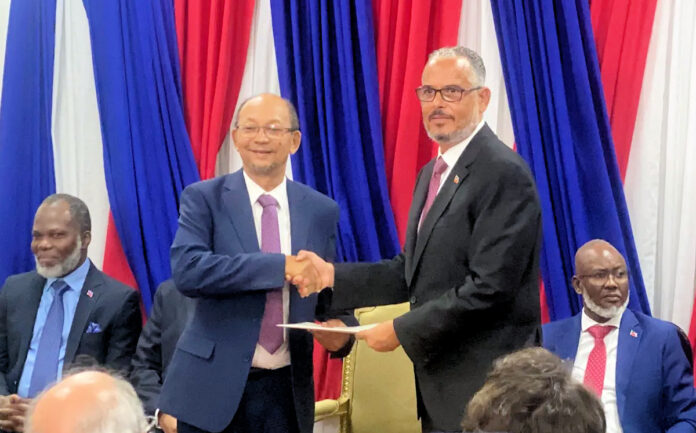
(The first of two parts)
(Français)
When former Catholic liberation theologian priest Jean-Bertrand Aristide burst onto the world stage in the late 1980s and early 1990s it was as an opponent and victim of U.S. imperialism. He challenged Washington-supported neo-Duvalierist military regimes, called capitalism “a mortal sin,” survived several assassination attempts, and eventually won the presidency twice – in 1990 and 2000 – in the face of U.S. opposition.
Today, however, the party he founded in 1996 (and by whose founding charter he is “leader for life”), the Lavalas Family Political Organization (Fanmi Lavalas or FL) is Washington’s principal ally in Haiti, agreeing to request foreign military intervention and occupation to crush an erratic but effective resistance by a motley coalition of armed neighborhood committees which are calling for radical social change or, at the very least, inclusive national dialogue.
The Lavalas Family’s transformation from popular champion to imperial quisling has occurred in stages over the past three decades and has parallels in Latin America. One could take the example of Argentina’s Juan Perón whose first reign from 1945 to 1955 was generally considered nationalist and, by some of his followers, leaning towards socialism. But when Perón finally returned to power from an 18-year exile in 1973, he worked hand-in-hand with Washington in crushing revolutionary groups and massacring the Peronist left while embracing neighboring dictators like Chile’s Augusto Pinochet and Paraguay’s Alfredo Stroessner.

The FL’s transformation has been more gradual, but the end result is the same. The figure and party which once could mobilize thousands by inspiring the masses with hope have now become either ineffectual or even reviled.
This article cannot trace the Lavalas Family’s entire history but will examine its role, and that of its allies, in the past five years or so.
When a Lavalas leader is rejected by the population
Haiti’s Transitional Presidential Council (TPC) recently nominated Printemps Bélizaire to the powerful executive post of Delegate for the West Department, which includes Haiti’s capital and largest city, Port-au-Prince.
Bélizaire is the former FL deputy for Port-au-Prince’s 3rd District, which comprises greater Carrefour, the capital’s southern flank.
The reaction from some Port-au-Prince residents was swift. On the morning of Dec. 4, a protest began in the Canapé-Vert neighborhood. Protesters erected barricades of burning tires in several streets. Dorvil Webestson reported that local brigades blocked several other neighborhoods, including Debrosse and Bois Patate.
Ergens Saint-Pierre, a resident attending the Canapé-Vert protest, explained that the neighborhood’s people felt they should have a say in the choice of their representatives. “It is up to the people of Canapé-Vert to choose who should represent them. We do not accept just anyone, especially if it risks worsening the security situation.”
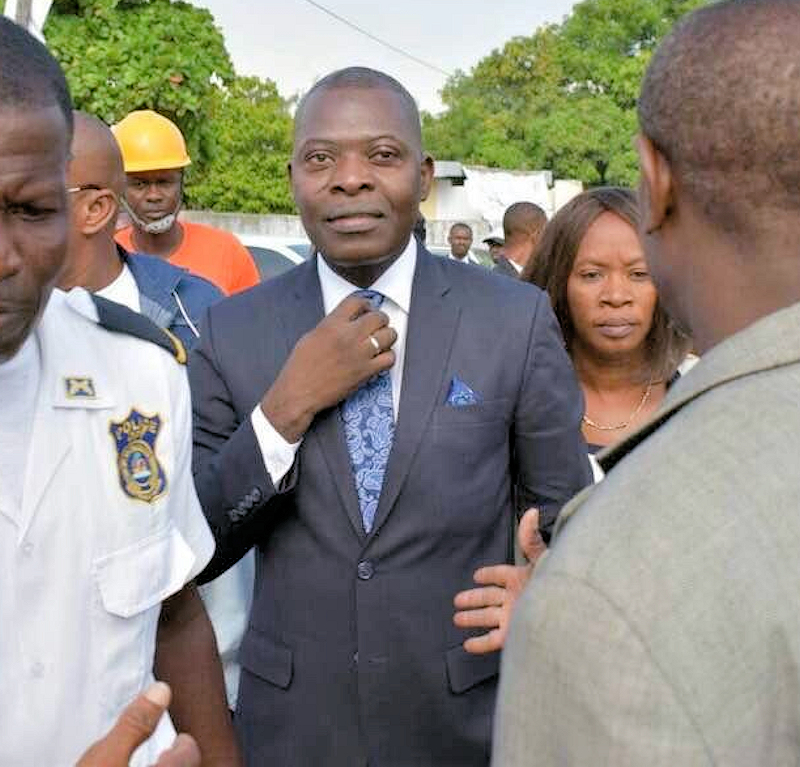
Other residents attending the protest explained to Haiti Standard why Bélizaire’s nomination risks worsening the security situation. “This former MP is known for his links with armed individuals,” a resident said.
This swift rejection of an FL politician may have shocked some, particularly those in the West who continue to view the party as Haiti’s democratic vanguard.
FL MPs’ alleged connections to criminal armed groups
Bélizaire made headlines in Haiti in June 2019 when he was recorded saying in Parliament that he “burn[ed] down police stations and murder[s] people with machetes.”
This bizarre outburst came about six months after Bélizaire was summoned for questioning in connection to the 2018 murder of journalist Vladjimir Legagneur. He responded by claiming that he had a diplomatic engagement in Canada and couldn’t attend. There is no evidence Bélizaire went to Canada. Nonetheless, he disappeared from public view until the summons expired. He never testified.
The summons to testify and his subsequent temporary disappearance from public view followed weeks of back and forth accusations between Bélizaire and Sen. Joseph Lambert.
Lambert, who is now sanctioned by the U.S. and Canada for abusing his position “to traffic drugs” as well as collaborating with “criminal and gang networks,” accused Bélizaire of helping then notorious gang leader Arnel Joseph to avoid arrest.
As the elected representative of the capital’s 3rd District, Bélizaire represented the neighborhoods of Grand Ravine, Ti-Bois, and Village de Dieu, among others. Arnel Joseph was based in Village de Dieu, while Vladimir Legagneur was investigating gang activity in Grand Ravine when he disappeared.
Bélizaire’s friend and former FL deputy Roger Millien was also associated with criminal armed groups.
Millien admitted to Le Nouvelliste that he personally knew Hervé Bonnet Barthélémy alias Bout JanJan, leader of the then criminal armed group Projet Lasaline. He even drove an injured Bout JanJan, along with other members, to the hospital after an attack by a rival armed group.
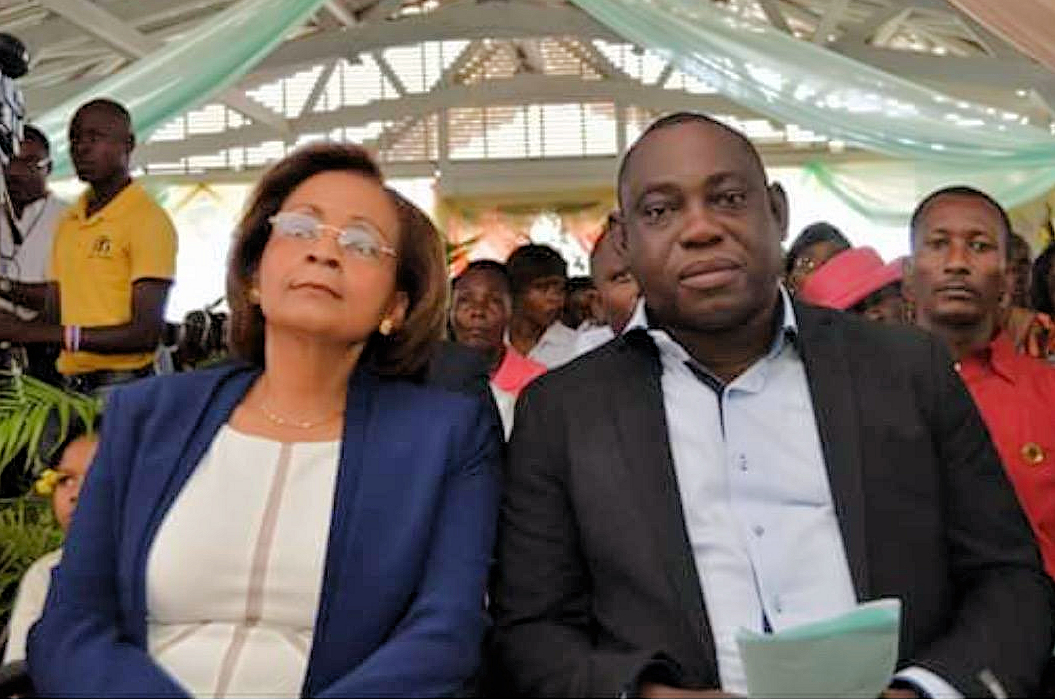
It was Millien who first alleged that the attacks in La Saline were politically motivated. He accused local Haitian Bald-Headed Party (PHTK) politicians of planning the attacks.
Millien’s version of events insist that the PHTK planned the Lasaline attacks to target FL supporters. On Nov. 15, 2018, less than 48 hours after the clashes, the FL published a press release, which preceded any other report. The press release said that the party “strongly condemns the massacre that the [President] Jovenel [Moïse] and [Prime Minister Jean-Henry] Céant regime conducted in Lasaline.”
Millien alleged there was a planning meeting for the attacks in Lasaline attended by Jimmy “Barbecue” Cherizier (leader of an adjoining neighborhood), Ti Junior (leader of a rival Lasaline armed group called Nan Chabon), and some PHTK members. These allegations appeared in the first two “human rights” group reports on what they dubbed the Lasaline “massacre.” The human rights groups were the Open Eyes Foundation (FJKL) and the National Human Rights Defense Network (RNDDH). Both reports directly reference Millien’s version of events, and he appears to be the sole source for this allegation.
Millien never offered an explanation on how he could know the details of a planning meeting which he did not attend. Nor did he explain why he didn’t warn Lasaline residents of the impending attack. It is worth noting, however, that according to a Jun. 21, 2019 UN report on the attacks in Lasaline, the members of the Projet Lasaline gang fled before Nan Chabon’s attack, indicating they may have been forewarned.
Millien’s efforts successfully reframed and politicized what was initially understood by many residents to be deaths resulting from an ongoing turf war instead of an attack by PHTK agents on Fanmi Lavalas supporters.
Fanmi Lavalas and the Democratic Popular Sector (SDP)
Millien and Bélizaire collaborated closely with another Fanmi Lavalas leader, Dr. Schiller Louidor.
Louidor had several public battles with Maryse Narcisse, the head of the FL’s executive council, going as far as calling her “incompetent” and openly challenging her leadership of the party in June 2018.
Louidor also co-founded the Secteur Démocratique et Populaire (Democratic Popular Sector or SDP) with André Michel and Marjorie Michel, although he never officially split from the FL.
After Jovenel Moïse’s Jul. 7, 2021 assassination, both André and Marjorie Michel would go on to become ardent supporters of Ariel Henry, while Louidor eventually left the coalition. Former FL senator Nènel Cassy was also an SDP leader for years.
Fanmi Lavalas struggles to remain relevant
Following Jovenel Moïse’s assassination, the Fanmi Lavalas Executive Council decided to support the Montana Accord, which was signed and announced on Aug. 30, 2021, claiming to represent “a broad spectrum” of Haitian civil society.
Before throwing their support behind Montana, the FL had been promoting their “Chavire chodyè a” (Overturn the cauldron) plan, which had failed to garner a significant amount of support in Haiti.
The decision to support the Montana Accord was a large concession by the FL, signaling that it could no longer easily garner mass support for its initiatives.
The Montana Accord’s leadership in the Bureau de Suivi de l’accord (BSA or Agreement Monitoring Office) included political figures who were active in the 2004 coup against Jean-Bertrand Aristide and Fanmi Lavalas.
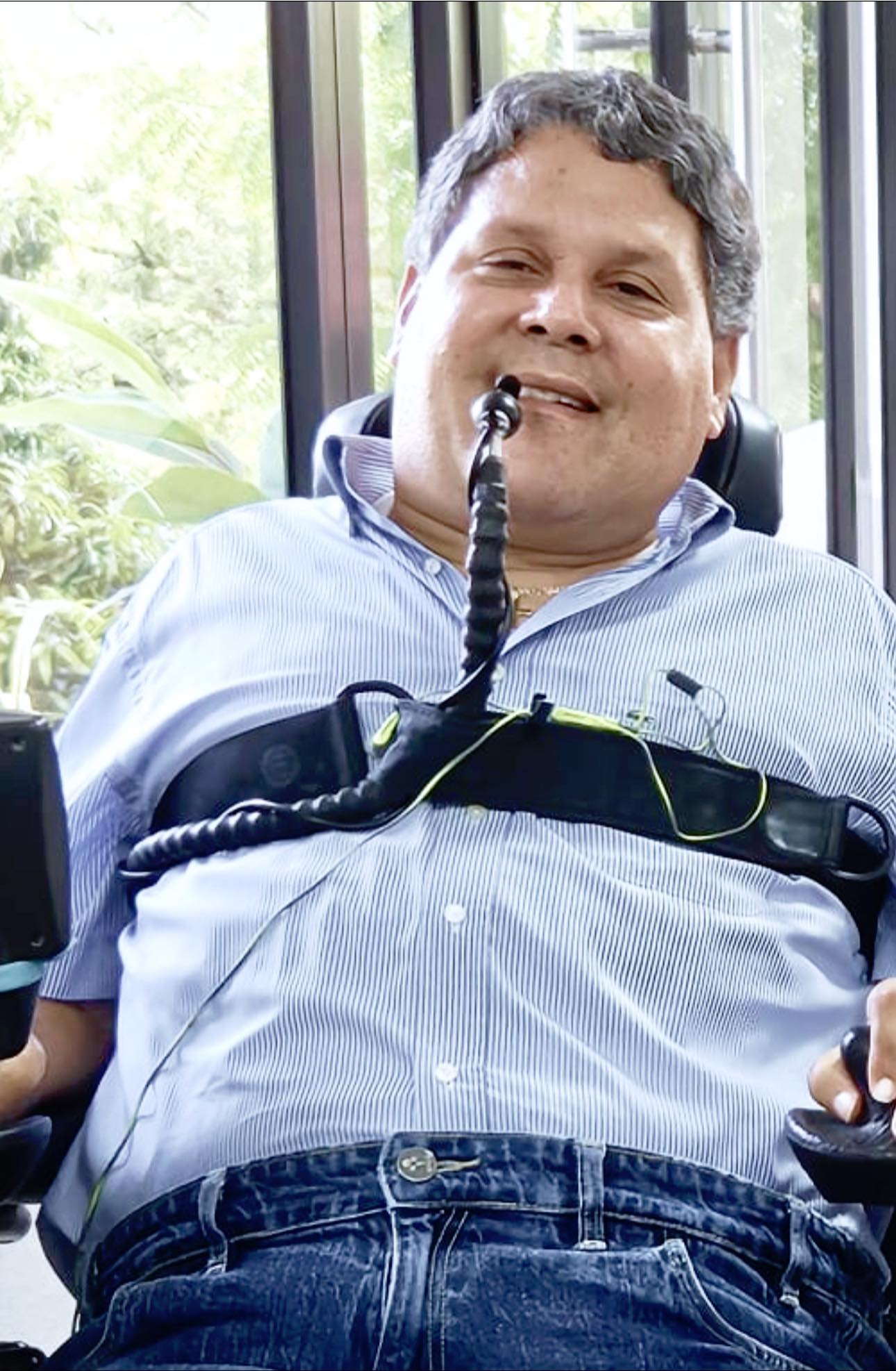
Key players in the coalition included individuals like Pierre Esperance, RNDDH’s head, at whose offices the Montana leadership often met. Esperance played a pivotal role in the destabilization campaign against Aristide and Lavalas, working with the coup government to target and jail party militants and leaders. Magali Comeau Denis, the Montana Accord’s main spokesperson, also was central to the destabilization campaign, leading the intellectuals of “Collectif Non” and efforts to persecute and jail FL leader Father Gérard Jean-Juste following the coup. Comeau Denis became the coup regime’s Culture Minister.
The FL withdrew after five months from Montana’s National Transition Council, because it did not choose the leadership they wanted. Other popular and labor organizations also began to split from the Montana Accord as it became clear that their principal strategy for attaining power was to appeal to Washington.
Fanmi Lavalas’ next move was to support the Transitional Presidential Council, organized in March 2024 by CARICOM under the watchful eye of Washington and the CORE group. As Dr. Jemima Pierre pointed out in her article Anatomy of an Invasion, the members of this council were handpicked by Washington and all had to agree to support a foreign invasion in the form of the Multinational Security Support Mission (MSS).
The FL Executive Committee’s shift towards the enlightened liberal bourgeoisie, first observed in 2013, was officially consummated by its decision to join the TPC and agree to another foreign occupation force. It was a complete capitulation to the imperialists.
Fanmi Lavalas takes control of dysfunctional TPC
The FL represents the TPC’s “left flank” along with the Montana Accord.
The Montana Accord’s BSA announced that since Jun. 7, 2024 it had broken off all communication with its TPC representative, Fritz Alphonse Jean, accusing him of embezzling “intelligence funds for personal gain.”
Meanwhile, FL’s executive has publicly criticized Leslie Voltaire, their TPC who also occupies the rotating presidency.
Speaking on behalf of FL’s executive committee, Joël Édouard “Pasha” Vorbe told journalists: “We have asked Leslie Voltaire to take strong measures, including the removal of the three councillors charged. They cannot sit on the Council until a clear court decision has been made.”
Interestingly, FL’s executive committee has not criticized Voltaire for requesting a UN occupation force. In an October letter to the UN Secretary General, Voltaire asked “that the MSS be transformed into a peacekeeping mission as soon as possible.”
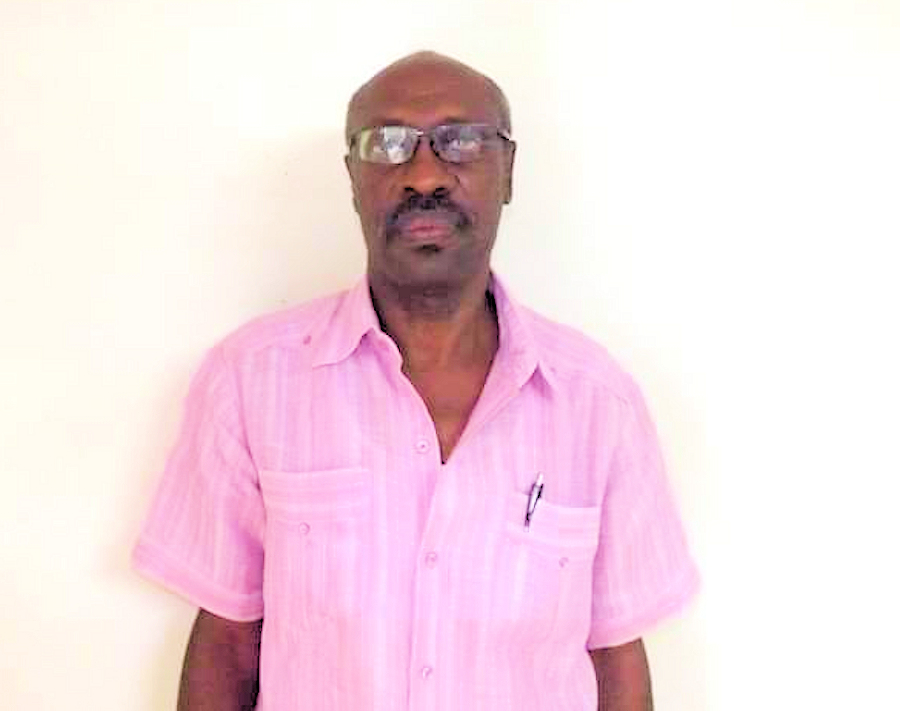
Given the UN’s repressive role in the aftermath of the 2004 coup and the opposition of most Haitians to another UN occupation force, Voltaire’s demand is shocking.
Vorbe was referring to three TPC members currently embroiled in a bribery scandal: Smith Augustin, Louis Gérald Gilles and Emmanuel Vertilaire.
Gilles, formerly of an FL senator, represents the signatories of the Dec. 21 Accord, which supported Ariel Henry. Augustin represents former Prime Minister Claude Joseph’s EDE/RED coalition, while Vertillaire represents former Sen. Moïse Jean-Charles’ Pitit Desalin (Dessalines’ Children) party.
Haiti’s Anti-Corruption Unit (ULCC) accuses these three TPC members of trying to extort close to $800,000 from the former chairman of the board of directors of the National Credit Bank (BNC).
According to Le Nouvelliste’s Robenson Geffrard, a source close to the ULCC said that Vertillaire was also accused of embezzling 1.5 million gourdes (about $11,500) for the benefit of the Dessalines’ Children party.
These three members, along with ex-TPC President Edgard Leblanc Fils, are all considered to be allied with the PHTK and represent the TPC’s political “right flank.”
Leblanc represents the Jan. 30 Collective, which includes PHTK President Liné Balthazar and UNIR’s leader Clarens Renois. (Balthazar’s PHTK faction is also technically part of the Montana Accord, but it never actively participated in that coalition.) Since completing his tenure as TPC interim president, Leblanc has become somewhat embattled in both the TPC and his coalition. Balthazar held a press conference to say that the Jan. 30 Collective no longer supports Leblanc and is intent on replacing him as its TPC representative.
In sum, most of the TPC’s political appointees are either accused of corruption or have lost all or some support of the political sector that nominated them. Only FL’s Voltaire and Laurent St-Cyr, who represents the “business sector” (i.e. oligarchs), remain on more or less good terms – at least publicly – with their sponsors.
Fanmi Lavalas now leads Haiti’s Patripoche Bourgeoisie
The current state of affairs prompted Haïti Liberté journalist Marie Laurette Numa to write in a recent article that the “Patripoche [pocket oriented i.e. greedy] bourgeoisie has somehow secured political control of Executive power.”
Indeed, with this new alliance built around Prime Minister Alix Didier Fils-Aimé and TPC president Leslie Voltaire, the Fanmi Lavalas is shoulder to shoulder with the oligarchs and the enlightened bourgeoisie long associated with the late President René Préval’s Inite and Lespwa parties.
Numa points out that PM Fils-Aimé is “very close to the Inite camp and Lespwa, directly connected to the oligarch Dimitri Vorbe, who is also a member of the same political movement.” She also pointed out that it is “clear that this new ministerial cabinet is under the thumb of the Private Business Sector.”
Dimitri Vorbe is the vice-president of Sogener, a private energy company in Haiti. Sogener’s CEO is Dimitri’s father, Jean-Marie Vorbe, who was sanctioned by the Canadian government. According to the Global Affairs website, the Canadian government believes Jean-Marie Vorbe is “fueling the violence and instability in Haiti through corruption and other criminal acts and by enabling the illegal activities of armed gangs that terrorize the population and threaten peace and security in Haiti.”
Dimitri is the brother of “Pasha” Vorbe, the FL’s current spokesperson.
Indeed, the Patripoche bourgeoisie stands to control the TPC until the promised elections. The succession plans see Fritz Alphonse Jean taking over in March and Laurent Saint-Cyr in August.
Assuming Fils-Aimé stays on as Prime Minster, the Patripoche bourgeoisie will retain control of the interim government until – if their plan succeeds – a new elected government is sworn in on Feb. 7, 2026.
The enlightened liberal bourgeoisie – as embodied by the new Lavalas/Inite government alliance – may have finally won its battle against its PHTK rival to regain control of the Haitian State.
Travis Ross is a teacher based in Montreal, Québec. He is also the co-editor of the Canada-Haiti Information Project at canada-haiti.ca. Travis has written for Haiti Liberté, Black Agenda Report, The Canada Files, TruthOut, and rabble.ca. He can be reached on X.










[…] Source link […]
[…] (English) […]
[…] (Read Part 1) […]